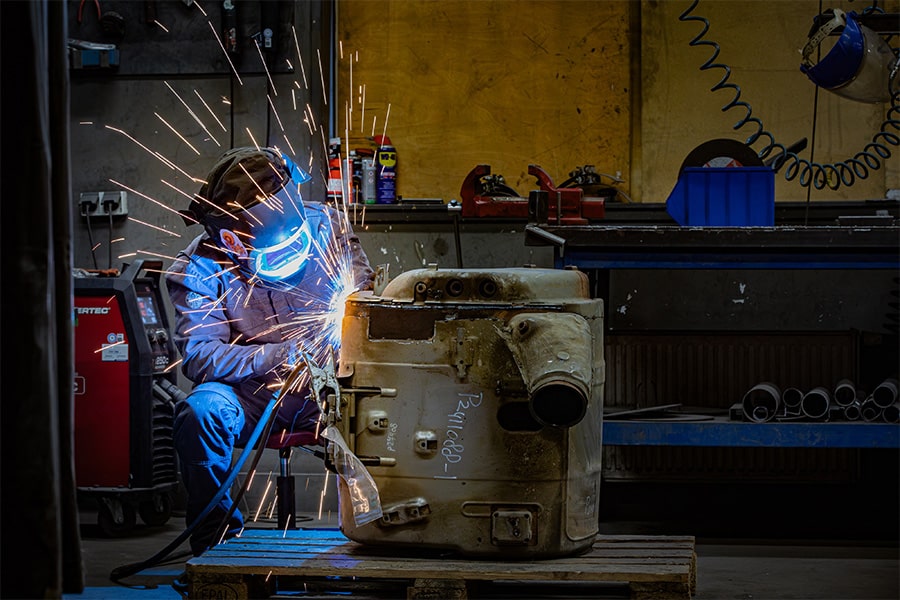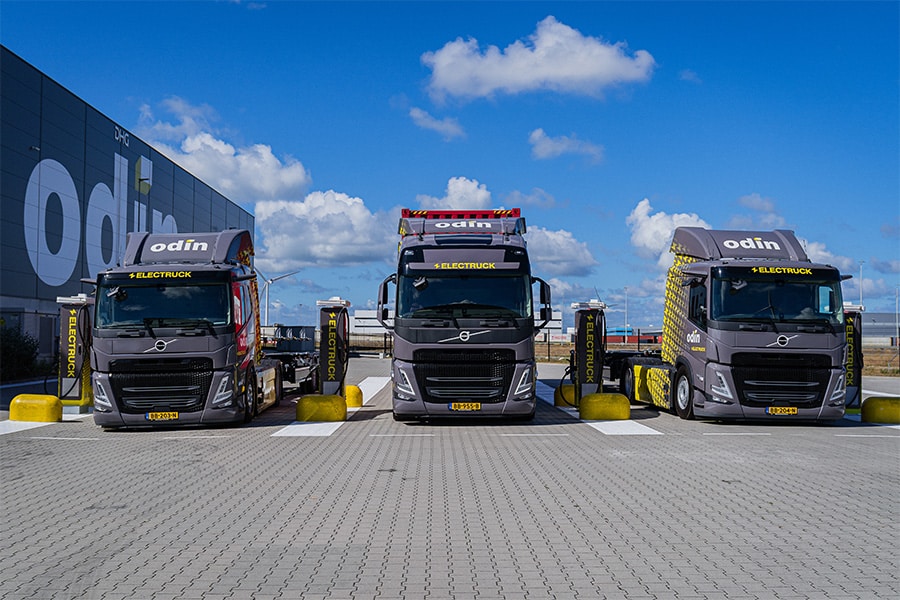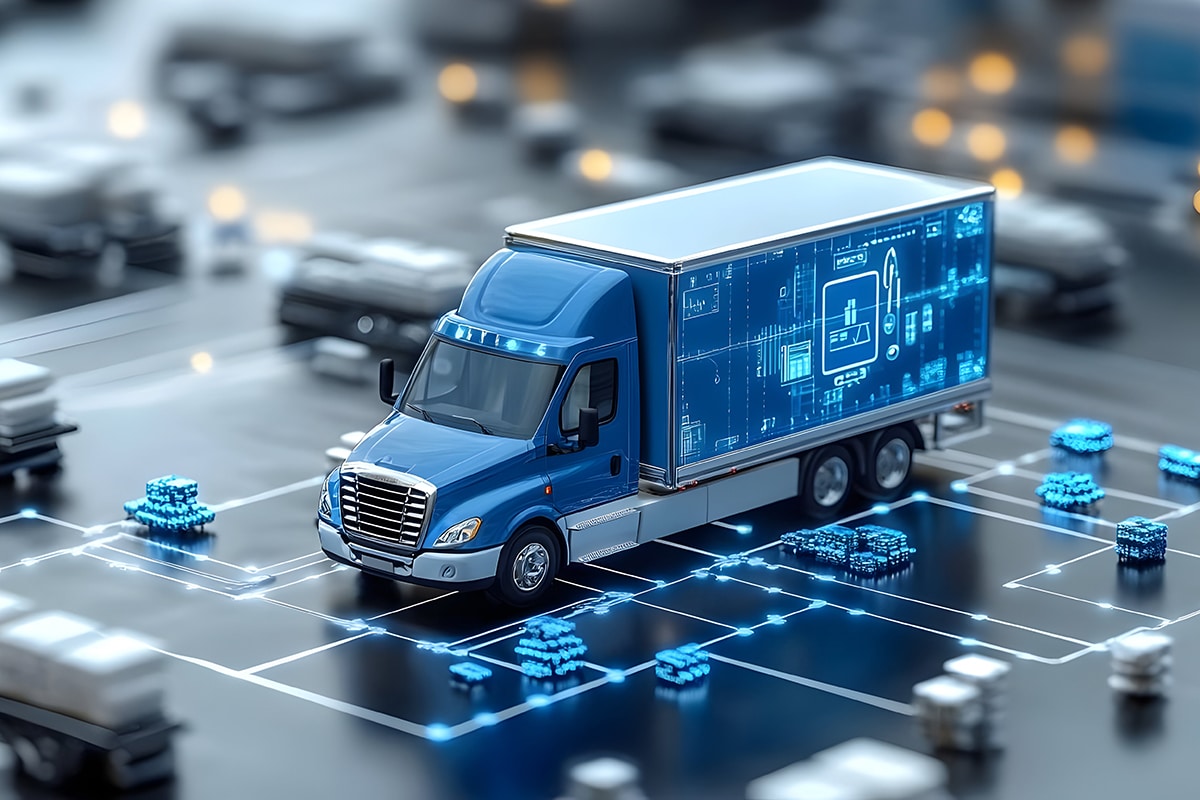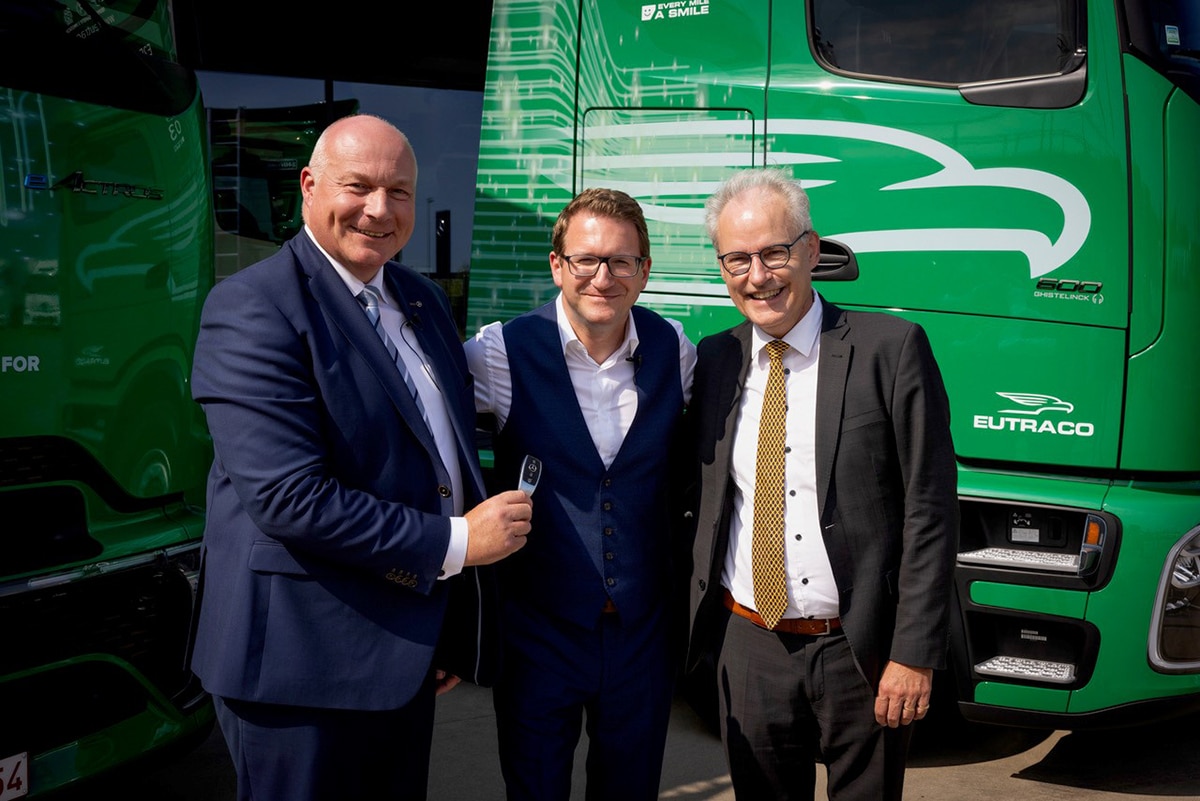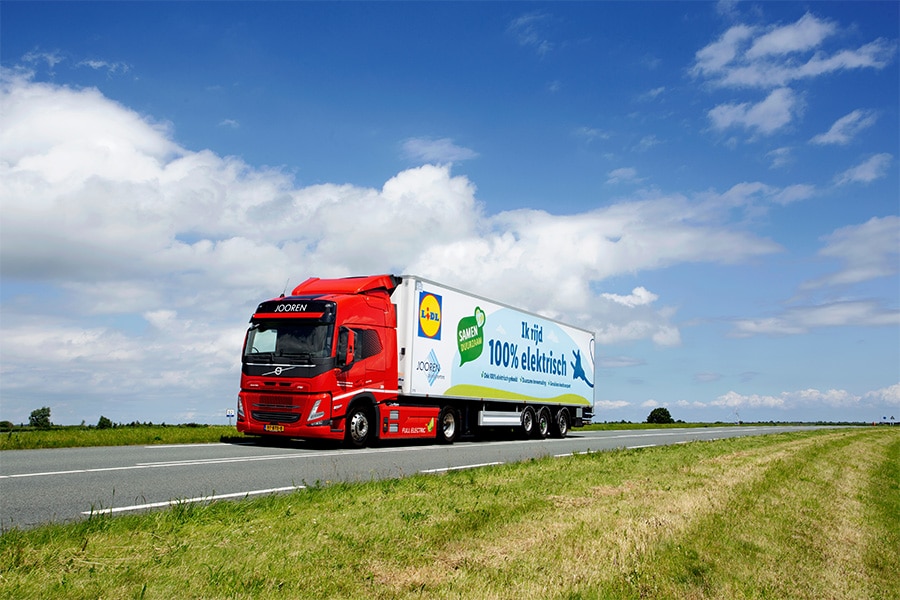
'Together we are accelerating the transition to electric transportation'
Lidl is actively taking steps to address bottlenecks such as grid congestion, polluting urban transport and complex sustainability pathways for transporters in a forward-looking way. For example, the supermarket chain recently opened the loading bays at its distribution centers to other logistics parties. Not a pilot project, but a deliberate strategic choice in line with Lidl's ambition to supply all stores from town to village completely electrically by 2030. Through smart cooperation and opening up its own infrastructure, Lidl Netherlands shows how the logistics sector can collectively accelerate sustainability. An interview with Ruud Metten, Manager Transport & Innovations.
"Such a loading plaza is a substantial investment," says Ruud Metten, Manager of Transport & Innovations at Lidl Netherlands. "Then it hurts our hearts if that infrastructure remains unused outside our loading hours. And if we plan it well - which we do - we know exactly when there is space. We can share that space. With neighbors, with suppliers, with other carriers. Everyone benefits from that."
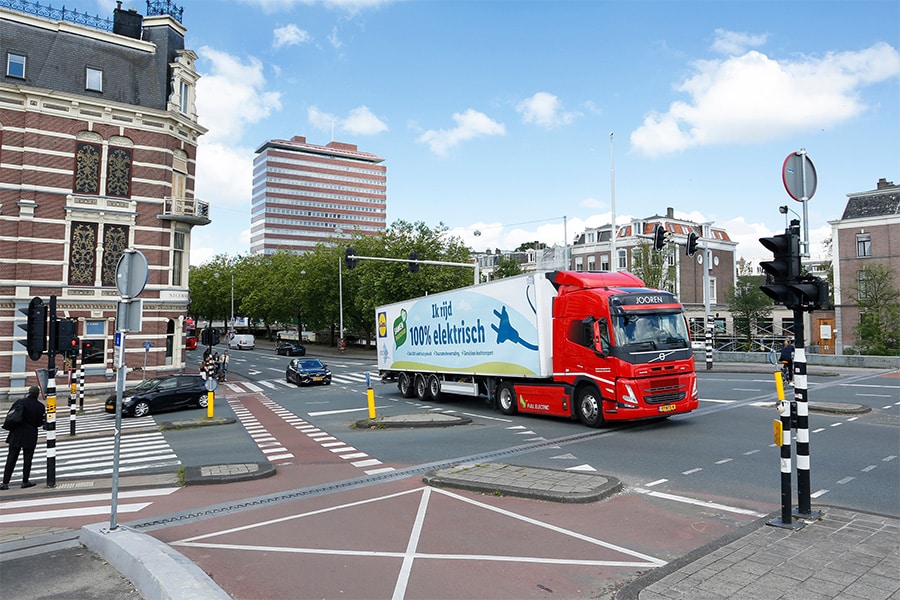
Smart sharing, smart charging
Lidl has six distribution centers, four of which - in Heerenveen, Almere, Oosterhout and Weert - are now equipped with operational loading bays. The remaining two - Etten-Leur and Waddinxveen - will follow in the course of 2025. The charging plazas supply 100% of green electricity, generated in part on roofs of Lidl branches or from the solar meadow Haghorst, with which Lidl has signed a Power Purchase Agreement.
According to Metten, the idea of sharing those squares arose organically. "Our suppliers often have to wait after unloading anyway because of driving times. Why wouldn't they use that waiting time to load? And why should we let our neighbors in the business park muddle along with queues or lack of connections when we have capacity left over?"
The charging plazas are accessible on the basis of time slots determined by mutual agreement. "We use a fixed low-cost rate per kilowatt hour, with no hidden fees. No fines, no billing fees. That keeps it low-threshold," Metten said.
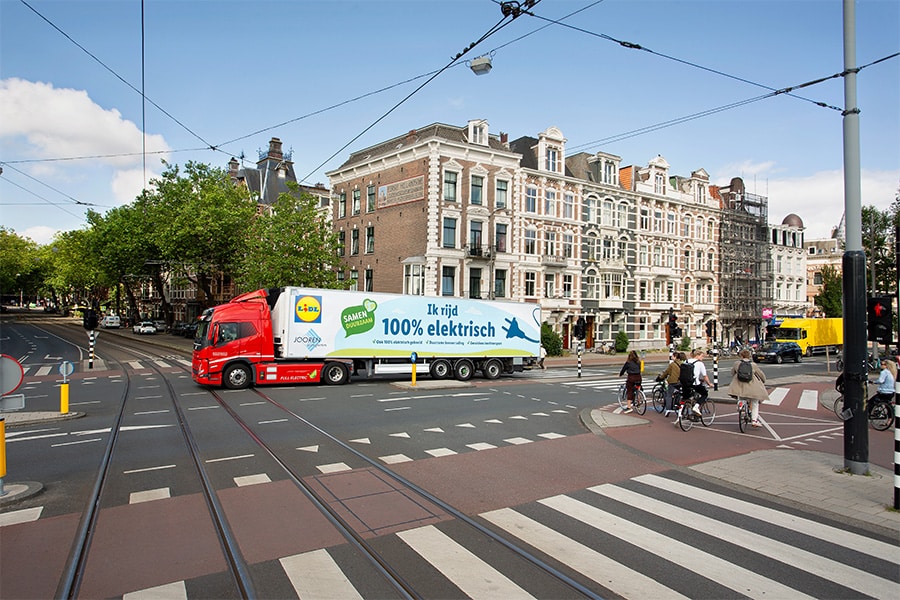
Catalyst for industry-wide sustainability efforts
What Lidl is doing is more than just sharing infrastructure. It provides opportunities for our suppliers to come and charge with us when delivering goods.
This is not an unnecessary luxury, he emphasizes. "Purchasing an electric truck is one thing, but the charging infrastructure around it is often much more complicated. Think about transformers, fire safety, insurance - and so on. We have largely taken care of that now, so the transporter doesn't have to think about this anymore.
Leading by example in Europe
Lidl was the first supermarket in the Netherlands to publicly commit to full electrification of its supplies before 2030. State Secretary Vivianne Heijnen (Infrastructure and Water Management) praised the initiative as an example that the cabinet's ambitions are achievable.
Internationally, Lidl Netherlands is now also generating interest. "The Netherlands is leading the way," says Metten. "We are now working with our interational Lidl colleagues to see how we can further roll out our approach.
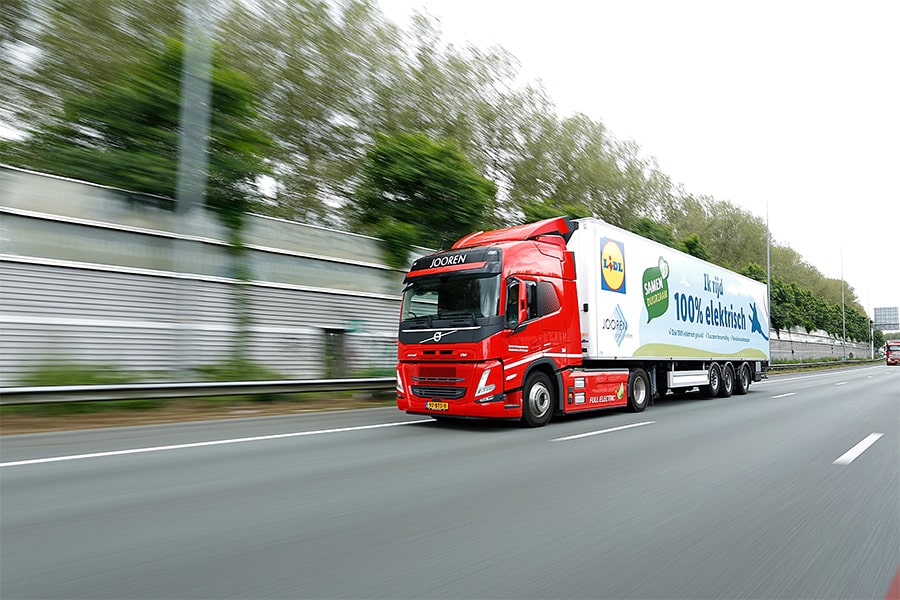
Transportation as a strategic pillar
Sustainability is not a marketing story, Metten emphasizes. "It is woven into everything we do. Our stores have been gasless since 2018, long before the war in Ukraine. And electric transportation fits perfectly into that. It's quiet, clean and ultimately cheaper. We drive short distances, combine refrigerated, fresh and dried products in one trip, and take return streams immediately. Efficiency and sustainability go hand in hand."
Moreover, Lidl creates clarity towards its transport partners. "We work with regular parties, sometimes for twenty years. In 2023, we announced the 2030 target. That gives transporters room to write off their fleets and plan their switch carefully. Together we set the dot on the horizon and work toward it."
The future is silent - and together
For Lidl, opening up the loading docks is just the beginning. "We hope this will inspire other companies," Metten concludes. "Increasing sustainability does not succeed alone. But if we share our infrastructure, use our knowledge and bring the chain along, we will make electric logistics accessible to everyone."
Cooperation with Volvo Trucks
The electrification of Lidl's branch delivery is not possible without strong partners in vehicle technology. One of the key players in that journey is Volvo Trucks. The vast majority of the current electric trucks Lidl operates come from Volvo.
"We don't prescribe a brand," emphasizes Ruud Metten, Manager of Transport & Innovations at Lidl Netherlands. "But many of our regular hauliers have been working with Volvo for years and also choose electric models from that brand. For us it is especially important that the trucks meet our functional requirements: sufficient range, battery capacity and deployability in our daily driving pattern."
"The energy transition in road transport is in full swing," says Jan Schouten, manager of energy transition at Volvo Trucks The Netherlands. "We see increasing demands for emission-free transport. Electric trucks are already there, but to really scale up, further growth of the charging infrastructure is crucial. Lidl is showing leadership by not only setting requirements for electric transport, but also actively facilitating it. By making charging plazas available, they create the preconditions for hauliers to step in. This is exactly what the energy transition needs: cooperation between shipper, carrier and manufacturer. Partnership is the new leadership in the chain. And there are great opportunities for carriers who step in now.
Among other things, Volvo Trucks supplied the vehicles for a recent photo shoot in Amsterdam, underlining Lidl's visibility of electric transport in urban environments. The cooperation is not limited to delivery: Lidl also actively exchanges knowledge with manufacturers such as Volvo to further optimize the deployment of electric trucks.
"As a leader in Europe, we want to know what is available, what works in practice, and how we can support our carriers in this," Metten said.
